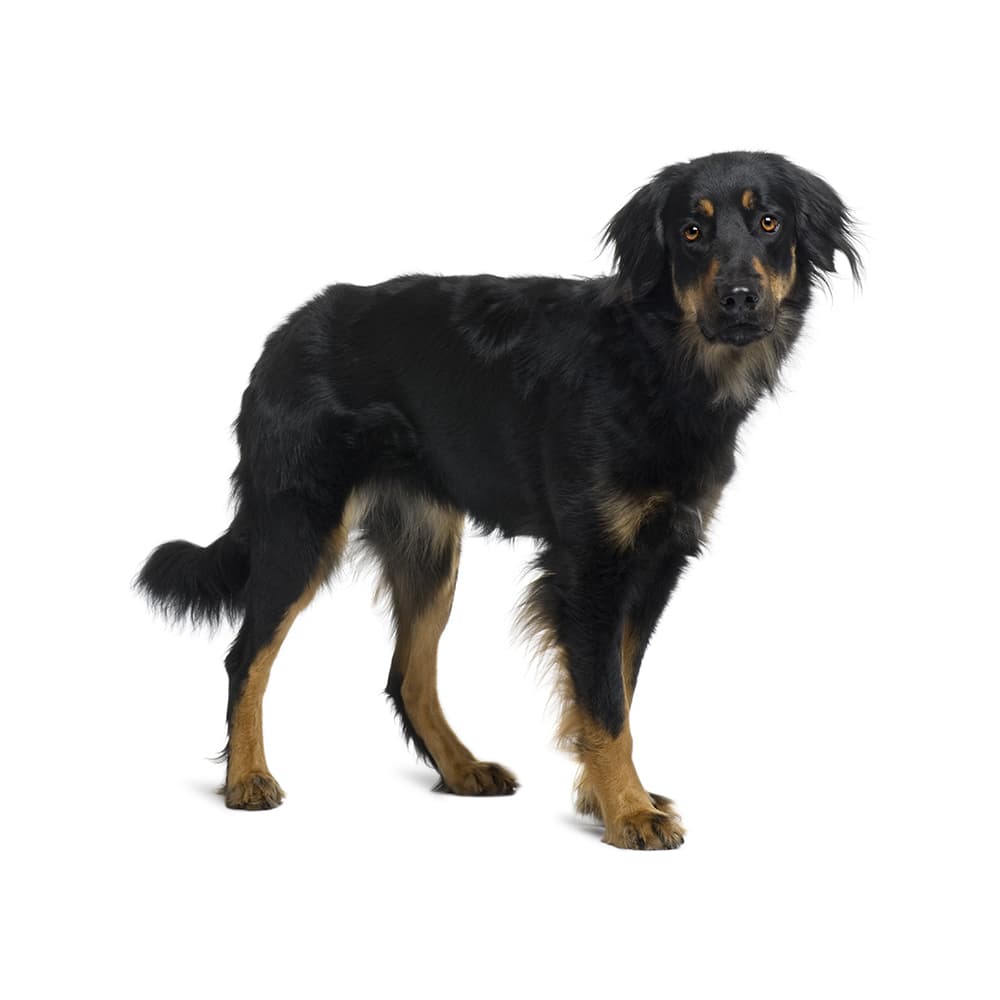Discover your dog's connection to this breed and 200+ others


Discover your dog's connection to this breed and 200+ others



The Hovawart is a very old German breed that was a part of royal German families for many years. In the 1400s, they were classified as one of the "noble dogs" that were highly prized as guard dogs. The breed faced a decline in numbers during the 19th century but experienced a revival in the early 20th century thanks to dedicated breed enthusiasts. German Shepherds, Leonbergers, and Newfoundlands were used to revive the Hovawart breed.
Hovawarts may suffer from degenerative myelopathy, Factor IX deficiency (hemophilia B), hypothyroidism, immunoglobulin A (IgA) deficiency, intestinal adenocarcinoma, and sebaceous adenitis. Genetic testing is recommended, including for the following additional conditions: hyperuricosoria, degenerative myelopathy, and progressive rod-cone degeneration.
Hovawarts are known for their loyalty, intelligence, and protective instincts. They are devoted to their families and make excellent guard dogs, as they are naturally watchful and wary of strangers. They are not typically aggressive, but should be well-socialized from a young age to ensure a balanced temperament. Hovawarts are highly trainable but are not for first time dog owners. They need an experienced trainer with consistent and patient training methods. These large dogs need a lot of space to run and exercise, and require regular mental stimulation.
A canine genetic lineage is a group of individuals or entire breeds that descended from common ancestors predating modern breed formation. Often these lineages are associated with a ‘type’ of dog with a unique historical working role and associated behaviors (e.g., herding, scent hunting, etc.).
Herding dogs are known for their high intelligence, trainability, and strong work ethic. These breeds originated in areas where managing livestock was an important part of daily life and had large pastoral lands. These breeds were specifically developed to help farmers and shepherds move, manage, and protect herds of livestock. Breeds within the herding dog lineage are agile and are known to have a natural herding instinct, where they like to keep their animals together. They are loyal and attentive to their handlers and are eager to please and are also highly aware of their environment. Many breeds within this linage have gone on to work as rescue and police dogs.
Example breeds with ancestry from this lineage include Border Collie, Cardigan Welsh Corgi, and German Shepherd.
According to the AKC, the origins of the Hovawart's name is an old form of the German language called Middle High German. Hova = Hof, which meant "yard" or "farm", and wart = Wächter in the old language, which meant "watchman".
The Hovawart breed played a crucial role during World War I as messenger and search-and-rescue dogs.
Due to the stringent breeding regulations of the International Hovawart Federation, these dogs are one of the longest-lived and healthiest of working dogs.
Doi:10.1002/9781119540687 https://www.fci.be/en/nomenclature/HOVAWART-190.html
https://www.akc.org/dog-breeds/hovawart/
https://www.ukcdogs.com/hovawart
Recommended by top vets with decades of experience
21 breeds
64 genetic health markers
50 genetic trait markers
